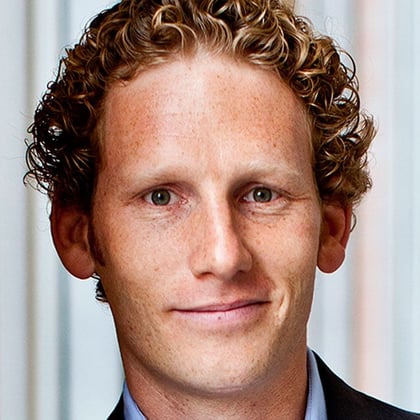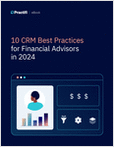Language has the power to be an even more potent tool than you’ve imagined: Certain words and phrases are better than others at changing minds and driving action, the new science of language reveals.
That’s what Jonah Berger, marketing professor at the Wharton School of the University of Pennsylvania says in his new book, “Magic Words: What to Say to Get Your Way” (Harper Business, March 7), and in an interview with ThinkAdvisor.
He has uncovered six types of magic words that can be used to your advantage, he says.
In the interview, the professor discusses vital, impactful words that convey confidence, plus five other categories of magic words.
The magic of showing confident certainty is demonstrated in a study of financial advisors, Berger points out.
“[It] finds that people are more likely to take advisors’ recommendations when they seem more certain about what they’re talking about — regardless of their accuracy. [This] made people more interested in choosing them,” the professor says in the interview.
Drawing from groundbreaking research, he groups magic words into six types: those that activate identity, convey confidence, ask the right questions, leverage concreteness, employ emotion and harness similarities (and differences).
A popular keynote speaker and a bestselling author of “Contagious” and “Invisible Influence,” among other books, the professor often advises companies like Amazon, Apple, General Electric Co., the Bill & Melinda Gates Foundation, Google, Moderna and Nike, and to political campaigns.
In the interview, he cites specific words and phrases that have the power to hold people’s attention and to persuade and convince, along with words having the opposite effect.
ThinkAdvisor recently held a phone interview with Berger, who was speaking from his office at Wharton.
He notes that, according to research, language can be predictive of behavior — like who’ll default on a loan.
Such borrowers give themselves away by using words like “stress” and “God” on loan applications, he says.
Here are excerpts from our interview:
THINKADISOR: Small shifts in wording can change the way we communicate, you write. You discuss six types of “magic words,” drawn from groundbreaking research. What power does language hold?
JONAH BERGER: We can use language to do two things: One, to influence others by how the things we say impact potential clients, spouses, colleagues [and others].
Language also reflects things about people. It says who they are and their likely future actions.
One type of magic words you write about are those that convey confidence. Please relate that idea to financial advisors’ interacting with clients.
Language isn’t just words; it’s also phrases or style. People such as startup founders or so-called gurus use extremely confident language — they speak with a great deal of certainty.
That’s one reason people are very likely to follow them. They think: This person is so certain about what they’re saying that I’d have to be an idiot not to take their advice.
Politicians use language that signals a great deal of certainty too: They say, “This is definitely true,” “This will certainly happen,” “This is absolutely the case,” Everyone agrees with this,” “This is clearly the right course of action.”
All that suggests they’re certain in their opinion. So you’re more likely to listen to what they say.
Please apply that line of thinking to financial advisors.
A study done with advisors finds that people are more likely to take advisors’ recommendations when they seem more certain about what they’re talking about — regardless of their accuracy.
Their seeming more certain made people more interested in choosing them.
What signals a lack of confidence?
Often people use “hedging” — certain words and phrases like “I think this is true,” or “This will probably work,” or “This might be the best course of action.”
Research finds that hedges make people less likely to take a recommendation because it makes the advice-giver seem less confident. As a result, people are less likely to take their advice.
So ditch the hedges, unless you add a “personal hedge.” For instance, “It seems to me like this would be a good choice” versus “It seems like this would be a good choice.”
Adding the personal hedge, “to me,” makes people think you’re more confident, more certain about what you’re talking about because you’re willing to attach yourself to what’s being said.
Consequently, they’re more likely to take your advice and move forward with your recommendation.
What’s the impact of using fillers, such as “you know” and “um”?
Many of us have common verbal tics like that. We use them because it’s easy and fills in conversational space when we’re not sure about what to say or need a moment.
But they can undermine people’s belief that we’re right by making us seem less certain [and therefore] making them less likely to take our advice.
Words that “leverage concreteness” are magical too, you point out. Why does vague language, like “identifying the value proposition,” as you point out, have little impact?
It’s important to show that you’re listening — whether you’re an advisor, customer service agent or a leader in a meeting [or other]. People want to feel that you’ve heard them.
This is particularly important in an advising capacity, where someone is trusting you with their assets. They want to feel that you “get” them, that you understand them and that you’ve listened to them.
You show them that with specific and concrete language. For example, describing a product as “containing lots of vitamins” rather than the abstract “nutritious.”
The same thing goes for how we [compose] an email. We’re hoping people will read it. But to do that, we have to hold their attention. Using concrete language makes it easier for people to understand what you’re talking about; and as a result, they’re more likely to stay tuned.








 February 27, 2023 at 11:45 AM
February 27, 2023 at 11:45 AM












 Copyright © 2024 ALM Global, LLC. All Rights Reserved.
Copyright © 2024 ALM Global, LLC. All Rights Reserved.